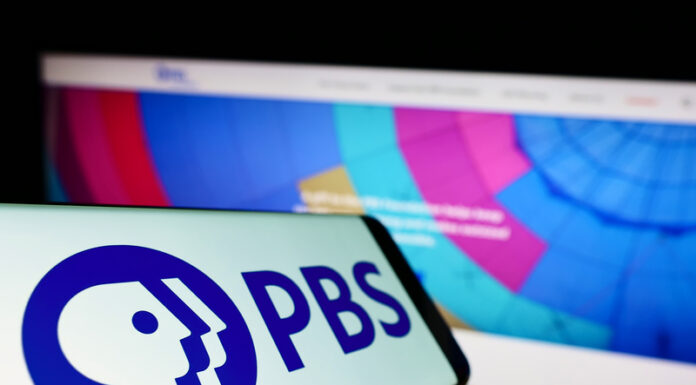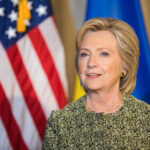President Donald Trump expressed strong support Tuesday, March 25, for eliminating federal funding to public broadcasting networks NPR and PBS, as the executives of both organizations appear before Congress today in a contentious hearing examining their use of taxpayer dollars.
During a White House press gathering, Trump endorsed the idea of cutting financial support to the public media outlets when asked about today’s hearing by the Department of Government Efficiency (DOGE) Subcommittee.
“Well, I would love to do that,” Trump said when questioned about potentially removing federal funding. “I think it’s very unfair. It’s been very biased.”
The president suggested that mainstream media adequately covers news without the need for publicly funded outlets, pointing to the reporters assembled before him as evidence of sufficient news coverage options.
“There’s plenty of coverage,” Trump added. “Look at all the media you have right now. There’s plenty of coverage.”
Trump characterized the federal money allocated to these organizations as wasteful spending, asserting that the networks maintain a partisan viewpoint that doesn’t represent all Americans. He indicated he wasn’t familiar with DOGE’s specific recommendations but presumed the subcommittee would advocate for shutting down federal support.
The DOGE Subcommittee, chaired by Rep. Marjorie Taylor Greene (R-Ga.), titled today’s hearing “Anti-American Airwaves: Holding the Heads of NPR and PBS Accountable.” National Public Radio CEO Katherine Maher and Public Broadcasting Service CEO Paula Kerger testified before the committee.
According to the subcommittee’s press release, the executives were asked to explain why “the demonstrably biased news coverage they produce for an increasingly narrow and elitist audience should continue to be funded by the broad taxpaying public.”
Rep. Greene expressed her expectations for the hearing, questioning why the networks should receive any taxpayer funding. She criticized the organizations for their coverage of several major stories, including Hunter Biden’s laptop controversy, COVID-19 origins investigations, and the Russia collusion investigation.
“I want to hear why NPR and PBS think they should ever again receive a single cent from the American taxpayer,” Greene said in a statement ahead of the hearing. “These partisan, so-called ‘media’ stations dropped the ball on Hunter Biden’s laptop, down-played COVID-19 origins, and failed to properly report the Russian collusion hoax.”
The congresswoman characterized their reporting as “one-sided” and said it “attacks over half the country to protect and promote its own political interests.”
The funding structures for both organizations involve complex mechanisms of direct and indirect federal support. NPR receives about 1% of its approximately $300 million annual operating budget directly from federal sources. Though additional funding flows through grants and allocations to local member stations that subsequently pay fees to NPR, bringing the indirect federal support to around 3% of its total budget.
PBS reportedly receives approximately 16% of its funding from government sources. Both organizations receive support through the Corporation for Public Broadcasting (CPB), which operates with an annual congressional appropriation of roughly $500 million.
The CPB, established by Congress in 1967 through the Public Broadcasting Act, serves as a buffer between political processes and public broadcasting organizations. Its funding is distributed primarily to local public television and radio stations nationwide, with portions designated for national programming.
According to PBS, “The News Hour receives about 35% of its annual funding/budget from CPB and PBS via national programming funds – a combination of CPB appropriation funds and annual programming dues paid to PBS by stations re-allocated to programs like ours. The remaining 65% is generated from individual donations, foundation grants and corporate sponsorships.”
PBS CEO Paula Kerger told The New York Times ahead of the hearing that “everything is at stake,” warning that “the future of a number of our stations across the country will be in jeopardy if this funding is not continued.”
Defenders of public broadcasting argue these organizations provide educational content, cultural programming, and journalism that might otherwise be unavailable, particularly in rural or underserved communities. Critics contend that with today’s vast media landscape, government-supported news organizations are unnecessary and potentially prone to political influence.
The hearing comes amid broader efforts by the Trump administration to identify government spending cuts and restructure federal agencies through the Department of Government Efficiency, led by entrepreneur Elon Musk and former presidential candidate Vivek Ramaswamy.
The confrontation reflects longstanding tension between Republican administrations and public broadcasting. Previous GOP-led efforts to eliminate federal funding for public media have faced resistance from both Democrats and some Republicans representing rural districts where public broadcasting stations provide significant community services.
As the hearing unfolds, the debate highlights fundamental questions about the government’s role in supporting media infrastructure and the appropriate balance between public funding and editorial independence in an increasingly polarized political environment.








